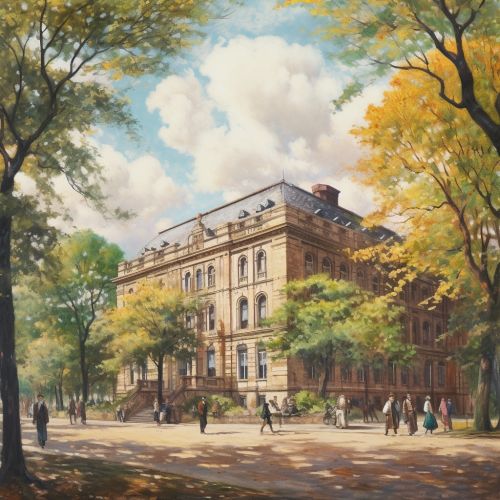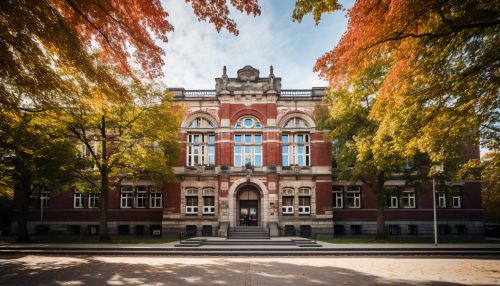Franz Boas
Early Life and Education
Franz Boas was born on July 9, 1858, in Minden, Westphalia, Germany. He was the son of Meier Boas and Sophie Meyer, both of whom were of Jewish descent. Boas was raised in a liberal, educated family that valued intellectual pursuits. His early education was in the local Gymnasium, where he developed an interest in natural history.
Boas went on to study at the University of Heidelberg, where he initially pursued physics and geography. However, his interest in cultural anthropology was sparked after reading works by Alexander von Humboldt, a renowned geographer, naturalist, and explorer. Boas then transferred to the University of Bonn to study geography under the tutelage of Theobald Fischer. He completed his doctorate in 1881 at the University of Kiel, where his dissertation focused on the optical properties of water.


Career and Contributions to Anthropology
After completing his doctorate, Boas embarked on a scientific expedition to Baffin Island in the Canadian Arctic, where he spent a year studying the Inuit people. This experience had a profound impact on Boas and solidified his interest in cultural anthropology.
In 1885, Boas moved to the United States, where he initially worked as a museum curator. He later became a professor at Columbia University, where he established the first Ph.D. program in anthropology in the United States. Boas is often referred to as the "Father of American Anthropology" due to his significant contributions to the field.
Boas was a pioneer of modern anthropology and is best known for his work in cultural relativism and linguistics. He rejected the prevailing theories of racial superiority and argued that cultural differences were not biologically determined but rather the product of historical and social conditions. His work in linguistics, particularly in the study of Native American languages, helped to establish anthropology as a distinct academic discipline.
Boas also made significant contributions to the field of physical anthropology. He conducted extensive research on human growth and development, challenging the prevailing theories of racial determinism and arguing for the importance of environmental factors in shaping human physical characteristics.
Legacy
Boas's work has had a profound impact on the field of anthropology. His theories of cultural relativism and his rejection of racial determinism have shaped the way anthropologists understand and study human cultures. His work in linguistics has also had a lasting impact, particularly in the study of indigenous languages.
Despite his significant contributions, Boas's work has also been the subject of criticism. Some have argued that his focus on cultural relativism and his rejection of biological determinism have led to a neglect of the role of biology in shaping human behavior. However, many anthropologists continue to uphold Boas's theories as foundational to the field.
